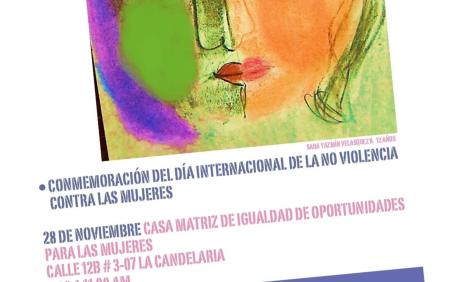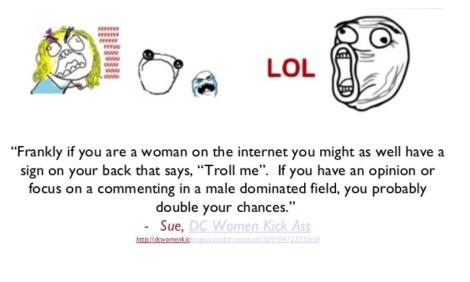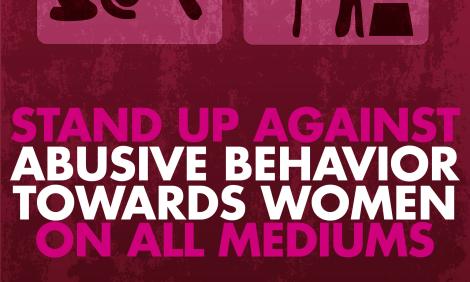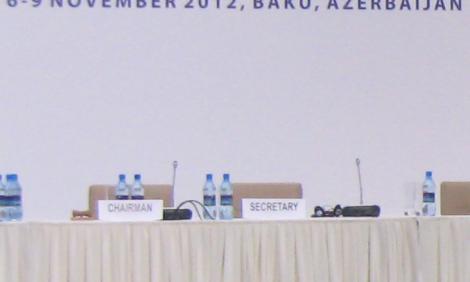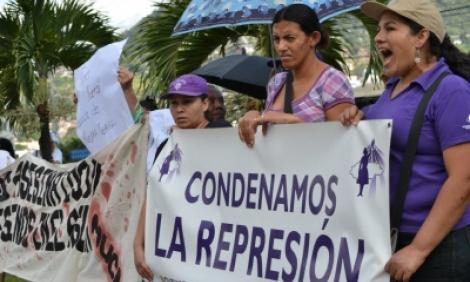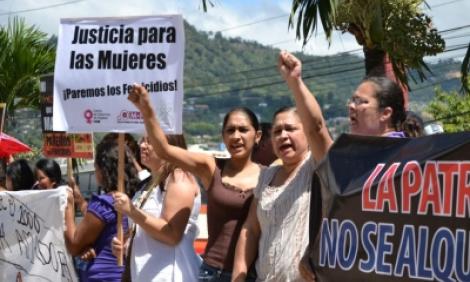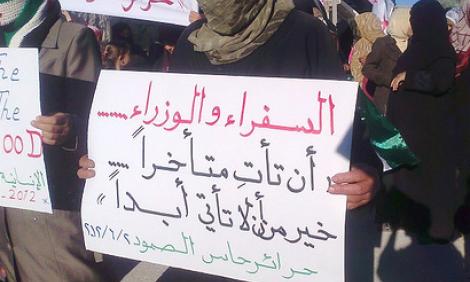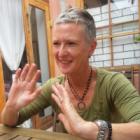In depth
Violence against women in Colombia: ICT overshadowed
By Florencia Flores Iborra
In Colombia there is no law or public policy that relates directly to violence against women and information and communication technologies. "This is a scenario where a lot that needs to be done, but which, at the same time, offers us an opportunity," said Olga Martinez Paz of the organization Colnodo, which runs the Colombia part of the APC project "End violence: women's rights and safety online…
In depth
Digital World 2012: stories to end violence against women
By erika
The "Digital World 2012 - Knowledge to Prosperity conference":http://www.digitalworld.org.bd in Dhaka, Bangladesh 6-8 December was an amazing mashup of private sector, government, education, and civil society united in their interest in ICT for development. As coordinator of APC's "End violence: Women's rights and safety online project":…
In depth
Tell me what social network you use and I'll tell you what your struggle is
By Florencia Flores Iborra
This article, written by Florencia Flores Iborra for GenderIT.org, analyses some current cultural practices on some of the more popular online social networks, and the ways in which the publication policies of these platforms support or restrict the proliferation of certain behaviors relating to respect for the rights of women on the internet.
In depth
The online world might be scary, but it can be a place where we empower one another
By
Online harassment has become incredibly common for women around the world. Perpetrators of this violence act without fear of recourse, as anonymity protects them, and law does not limit their hate speech. Many women leave the online world out of fear that this violence will affect them in the offline world. But there are strategies that exist for women online activists to use to protect…
In depth
Women at the IGF: Now we need to mainstream gender
By Sonia Randhawa
This year's Internet Governance Forum came to a close in Baku, Azerbaijan on 16 November. GenderIT.org contributor Sonia Randhawa spoke to three women about their experiences at the IGF, and whether any progress is being made in terms of the representation of women, and the prominence of women's rights and gender as cross-cutting issues for internet goverance. Jac sm Kee is from Malaysia and…
In depth
Women human rights defenders and digital security: Reflections with a Latin American accent
By Daysi Flores
A survey of women human rights defenders (WHRDs) conducted as part of APC’s Connect Your Rights! campaign revealed some interesting practices and perceptions in terms of their use of information and communications technologies in their work. Daysi Flores, a GenderIT.org contributor, analyses the preliminary results of the survey, in light of the realities of Latin America.
In depth
Who benefits from the silence? Freedom of expression and women human rights defenders in Costa Rica, Honduras and Guatemala
By Daysi Flores
In this article, Daysi Flores, a JASS Mesoamérica representative and GenderIT.org contributor, looks at a number of new cybercrime laws in Costa Rica, Honduras and Guatemala that pose a threat to online security, the right to privacy, and freedom of expression and association for the countries’ citizens in general, but for women human rights defenders in particular.
In depth
Surveying Women Human Rights Defenders: Harassment is the biggest online problem
By Sonia Randhawa
The Association for Progressive Communications (APC)'s “Connect your rights: Internet rights are human rights” campaign has commissioned one of the first international surveys of the online threats faced by women human rights defenders (WHRDs). Responses came from 13 English-speaking countries, and across Spanish-speaking Latin America, with just over 40 people responding. The survey thus…
In depth
Egypt: Cyber-security as a priority and an integral part of human rights advocacy
By Mavic Cabrera-Balleza
GenderIT.org correspondent Mavic Cabrera-Balleza interviews Yara Sallam, Manager of the Women Human Rights Defenders Program at Nazra for Feminist Studies in Egypt, on the challenging reality for women human rights defenders, how they are affected by measures taken by the government in the name of “national security”, and strategies used to address threats to WHRD's cybersecurity.
In depth
Collateral damage of the cyberwar in Syria
By Jennifer Radloff
Jennifer Radloff and Grady Johnson speak to a Syrian activist in exile about the government increasing tendency to securitize the internet and crack down freedom of expression and freedom to privacy on-line. They also talk how limited access to ICTs, self-censorship due to widespread surveillance and reliance on commercial social networks in combination with a general lack of technical knowledge…

